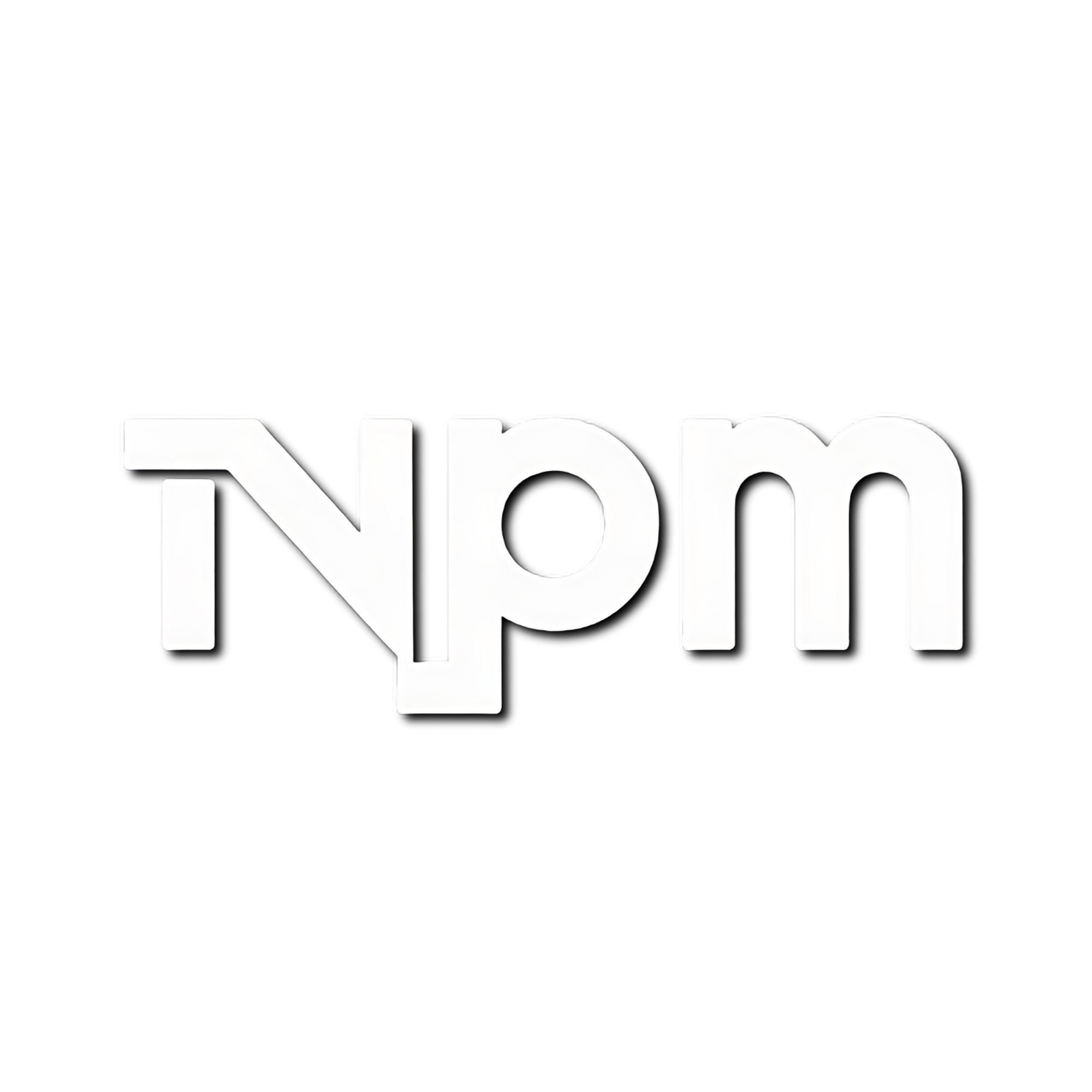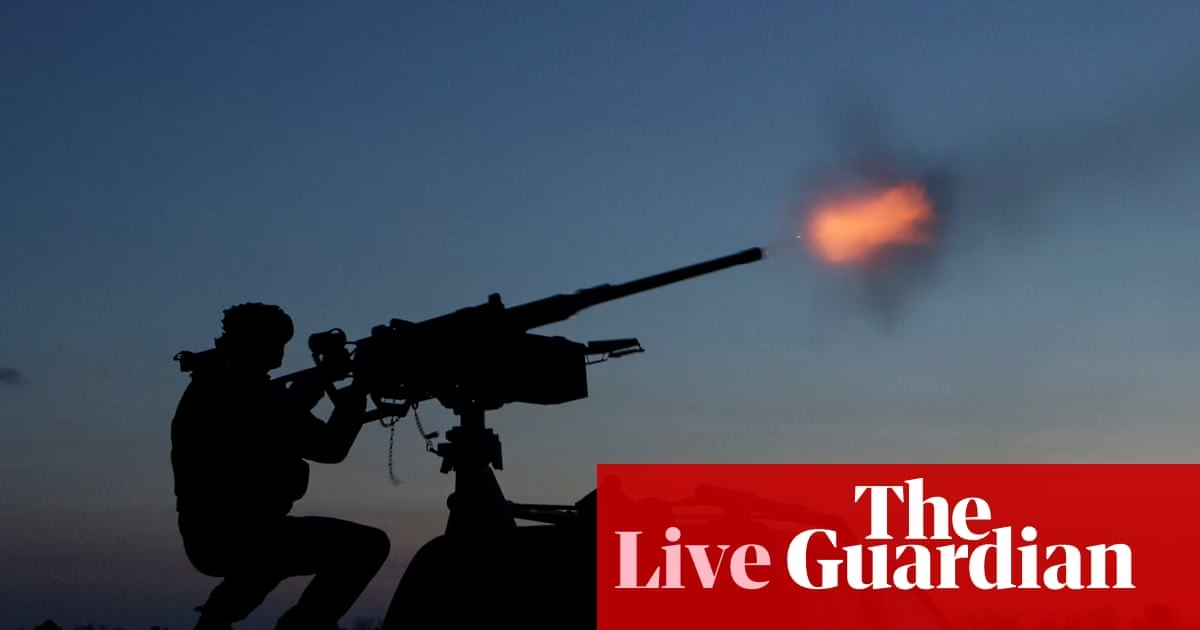Weapons and ‘ceasefire prospects’ discussed during Zelenskyy-Kellogg meeting, Ukraine says
We have got some more detail from the meeting today between the US envoy to Ukraine, Keith Kellogg, and Ukrainian president Volodymyr Zelenskyy.
See post at 12.28 for Zelenskyy’s readout published following the meeting.
In a statement, the Ukrainian president’s office said the two discussed Russia’s “massive attacks” on civilians and infrastructures, the bolstering of Ukraine’s air defences, “the overall frontline situation” and the “needs” of Ukrainian soldiers.
The statement added:
The President confirmed Ukraine’s readiness to purchase American weapons, particularly air defense systems.
The parties also discussed joint drone production, the possibility of direct purchases of Ukrainian UAVs by the United States, and the potential for arms procurement in cooperation with European partners.
Volodymyr Zelenskyy and Keith Kellogg also addressed the prospects for a ceasefire, the need to increase pressure on Russia, and joint steps toward achieving a just and lasting peace.
Special attention was paid to sanctions, including the bipartisan bill by Senators Lindsey Graham and Richard Blumenthal, which has already garnered support from over 80 senators.
Key events
In an earlier post, we mentioned that the Ukrainian first deputy minister Yulia Svyrydenko was nominated to replace Denys Shmyhal, Ukraine’s longest serving prime minister, in a major cabinet reshuffle.
Svyrydenko’s appointment will require approval by parliament, which has largely united around Ukrainian president Volodymyr Zelenskyy since the full-scale invasion and is unlikely to vote against him. The parliament’s next session is to begin this week.
Svyrydenko, 39, who also currently serves as economy minister, is considered a close ally of Andriy Yermak, Zelenskyy’s chief of staff.
She gained prominence this year during fraught negotiations around a rare minerals deal with the US. The minister is therefore thought to have strong ties with top officials in the Trump administration, whom Kyiv relies for vital military and diplomatic support.
Speculation about a change at the helm of the Ukrainian government has been circulating for months so this news does not come as a complete shock.
We can bring you some comments from the daily briefing the Kremlin spokesperson, Dmitry Peskov, had with journalists earlier.
In it, Peskov was asked to respond to Estonia’s reported first use of the Himars multiple launch rocket system last week, when simulated maritime targets in the Baltic Sea were struck.
He asserted that Russia, which shares a border with Estonia, will “firmly defend” its interests in the Baltic region, telling reporters during the briefing:
The Baltic region is tense due to the aggressive policies of European coastal states. Russia intends to firmly defend its legitimate interests in this region.
The fact that many countries are engaged in provocative actions there is an obvious reality.
Tallinn received six launchers in April 2025 as part of an agreement between Lockheed Martin, in cooperation with the US army and the Estonian government.
Himars is an advanced missile launcher mounted on a five-tonne truck which can rapidly fire multiple guided missiles. The US-made system has been used by Ukraine to target Russian forces during the war, and can reach distances of up to 300 kilometers.
Estonia, a tiny Baltic state once a part of the Soviet Union, is on high alert for any future Russian aggression and is looking at the situation in Ukraine with growing concern.
Other Baltic countries and Nato members – such as Lithuania – have also ordered Himars systems to bolster their defences.
Bastille Day in Paris – in pictures
Just as a brief break, let me bring you a few more pictures from Bastille Day celebrations in Paris.

Jakub Krupa
Could the proposed change of the Ukrainian PM have something to do with much-talked-about plans to change the country’s ambassador to the US?
Prime minister Shmyhal was reported by Bloomberg (£) to be on the short list of candidates, alongside deputy prime minister Olha Stefanishyna, defence minister Rustem Umerov and energy minister Herman Halushchenko.
One to watch.
Zelenskyy asks deputy PM Svyrydenko to become new Ukrainian prime minister
Oh!
Ukrainian president Volodymyr Zelenskyy has just posted a social media update saying he asked the first deputy prime minister Yulia Svyrydenko to “lead the government” and become the new prime minister of the wartorn country.
If confirmed, Svyrydenko would take over from the current prime minister Denys Shmyhal, in post since 2020.
Zelenskyy said the move was a part of a “transformation of the executive branch” and that he hoped her appointment would “significantly renew its work.”
He said:
“A report was delivered on the implementation of agreements with European and American partners regarding support for Ukraine reached during the recent Ukraine Recovery Conference.
We must swiftly implement everything that can strengthen the resilience of our state and society.
We also discussed concrete measures to boost Ukraine’s economic potential, expand support programs for Ukrainians, and scale up our domestic weapons production.”
Spain arrests eight after anti-migrant unrest
Meanwhile in Spain, Spanish police have arrested eight people in connection with rare anti-migrant unrest that rocked the town of Torre Pacheco over the weekend, interior minister Fernando Grande-Marlaska said on Monday, AFP reported.
Three nights of violence erupted on Friday after a 68-year-old man told local media three youths of North African origin had beaten him up in the street.
The southeastern town’s mayor Pedro Angel Roca told Cadena SER radio that social media had created a “breeding ground” for clashes that saw urban furniture broken and car windows smashed.
The authorities have arrested eight people, including two present during the attack on the elderly man whose role is being investigated, Marlaska said.
The other six detainees, five Spaniards and one North African, were held for assault, damage and altercations, the central government’s representative in the Murcia region, Mariola Guevara Cava, wrote on X.
Air defence, joint production, procurement, sanctions on table in US talks, Zelenskyy says
Ukrainian president Volodymyr Zelenskyy has just posted a short readout from his meeting with US envoy Keith Kellogg, saying the pair had a “productive” conversation about “the path to peace and what we can practically do together to bring it closer.”
“This includes strengthening Ukraine’s air defence, joint production, and procurement of defence weapons in collaboration with Europe.
And of course, sanctions against Russia and those who help it.”
He added:
“We hope for US leadership, as it is clear that Moscow will not stop unless its unreasonable ambitions are curbed through strength.”
He ended traditionally thanking Kellogg, Trump and the American people for their support.
Ukraine secret service says it killed Russian agents suspected of Kyiv assassination
Ukrainian intelligence agents killed members of a Russian secret service cell wanted on suspicion of having shot dead a colonel last week, the SBU said.
The SBU intelligence agency said in a statement that the operation had sought the arrest of the agents of Russia’s Federal Security Service (FSB), who it believes were behind the killing of Col Ivan Voronych – also a member of the SBU security service – in Kyiv on Thursday.
“This morning a special operation was conducted, during which the members of the Russian FSB’s agent cell started to resist, and therefore they were liquidated,” a statement on the Telegram messaging app on Sunday said.
Russian authorities made no immediate public comment on Sunday’s operation, which mirrored past assassinations of senior Russian military officials by Ukraine during the three-year-old war – a source of embarrassment for Moscow’s vast intelligence agencies.
The SBU said two people – a man and a woman – were suspected of having killed Voronych in a bold daylight attack that was caught on surveillance cameras. It did not say how many suspected FSB agents had been killed on Sunday, but the SBU posted a video in which two bodies were visible.
Media reports claimed that Voronych was involved in covert operations in Russia-occupied territories of Ukraine and reportedly helped organise Ukraine’s surprise incursion into Russia’s Kursk region last year.
According to the SBU, the alleged assassins were told by their handler to surveil their target and track his movements. They were eventually given the coordinates of a hiding place where they found a pistol with a suppressor, the SBU said.
On Ukraine, we also heard from Russia this morning, with the Kremlin saying that US arms and ammunition deliveries to Kyiv have continued and are still continuing, Reuters reported.
“Now it seems that these supplies will be paid for by Europe, some will be paid for, some will not,” Kremlin spokesperson Dmitry Peskov told reporters when asked about Trump’s comments over the weekend.
Peskov also sought to defect responsibility for stalling the US-backed ceasefire talks, claiming that Russia was ready for them and awaiting clarity on the timing.
On the EU-US trade, the European Commission has just told journalists to wait with their questions until this afternoon’s press conference after today’s Foreign Affairs Council meeting on trade.
The press conference will be attended by EU trade minister Maroš Šefčovič.
So we’re unlikely to get a substantive update before then.
Germany confirms plans to get ‘more than three’ Patriot systems for Ukraine
In the meantime, we are getting some lines from Germany on Ukraine, where the government spokesperson has just confirmed that European partners will contribute to the purchase of the Patriot systems for Ukraine, while Nato will not be directly involved.
Last week, we heard reports that Germany would pay for two systems, and Norway – for another one.
But the spokesperson now confirmed that “from the EU perspective, the talks are about more than three Patriot systems for Ukraine,” Reuters reported.
“Discussions are now being held on the modalities of implementation, i.e. how many systems there will be, who will take them over and how they will be financed,” the spokesperson said, referring to a visit by defence minister Boris Pistorius to Washington.
The spokesperson also added that Germany was seeing “larger Russian troops concentration,” adding that “we must strenghten Ukraine’s defences” in response.
France marks Bastille Day with plans to boost defence spending

Jon Henley
Meanwhile in Paris, France’s annual Bastille Day military parade is under way in all its pomp and colour, this year featuring more than 240 vehicles, 100 planes and helicopters and 5,600 troops marching down the cobblestones of the Champs-Elysées.
Besides providing the excuse for a nationwide party to mark the 1789 storming of the Bastille fortress and prison, the parade is also a display of French military force – which, in an increasingly uncertain world, Emmanuel Macron aims to increase.
In his traditional address to the military on Sunday, the French president announced €6.5bn in extra military spending over the next two years, saying freedom in Europe was facing a greater threat than at any time since the end of the second world war.
“We are living a pivotal moment,” he said, denouncing – in reference to Russia – “imperialist policies”, “annexing powers” and the idea that might is right.
Never has peace on our continent depended so much on the decisions that we take now.
France faced the challenge “of remaining free and masters of our destiny”, he added, saying France’s defence budget would rise by €3.5bn in 2026, and then by a further three billion euros in 2027.
“If you want to be feared, you must be powerful,” he said.
France had aimed to double its defence budget from 2017 levels by 2030. However, Macron pledged to reach the target three years earlier. A military budget that stood at €32bn in 2017 will rise to €64bn billion euros by 2027 and a projected €67bn in 2030.
Several Nato countries are boosting military spending after the alliance’s members agreed last month to spend 5% of their GDP on security. The UK aims to boost its defence budget to 2.5% of GDP by 2027 and 3% after 2029, Germany plans to reach 3.5% by 2029 and Poland already dedicates 4.7% of GDP to defence.
The major defence spending boost could, however, threaten efforts by France – which is under heavy pressure from the European Commission and financial markets to impose more fiscal discipline – to cut its deficit and reduce its debt mountain.
The servicing of France’s debt alone will cost the Treasury €62bn, and Macron ruled out further borrowing to fund the defence budget increase, saying it must be paid for by increased economic activity.
The prime minister, François Bayrou, who on Tuesday is to outline his budget plan cutting €40bn from the 2026 budget, has declared the defence budget to be “sacrosanct” and exempt from cuts.
European markets fall after Trump tariff threat

Graeme Wearden
Donald Trump’s threat to impose a 30% on European Union imports from next month is weighing on European stock markets this morning.
Most of Europe’s markets have dropped at the start of trading, pulling the pan-European Stoxx 600 index down by 0.6%.
Germany’s DAX has dropped by 0.95%, while France’s CAC 40 has lost 0.8%, Italy’s FTSE MIB index is almost 0.9% lower, and Spain’s IBEX is off 0.7%.
Investors will be assessing the chances of the two sides reaching a deal by 1 August.
Follow business live:
EU reacts to Trump threat – snap analysis

Lisa O’Carroll
A show of unity is expected publicly with German chancellor Friedrich Merz saying he will work “intensively” with Emmanuel Macron, Ursula von der Leyen and Trump to try and rescue the agreement in principle that was put on Trump’s desk last week involving tariffs of 10%.
Over the past three months Germany has urged a quick UK style deal while Macron has favoured a tougher stance to face down Trump, given average tariffs before his presidency were 2.5% and they breach WTO rules.
The EU’s continued and future reliance on the US for security and defence is influencing the position with member states accepting a trade off between business and arms and military intelligence Trump provides.
On Sunday, Merz told the ARD broadcaster that a 30% tariff would “hit our exporters to the core” while the German car industry called for a quick deal.
He said he agreed with Macron, who said on Saturday the EU had to “step up the preparation of credible countermeasures” in the event of no deal before 1 August.
In his statement Saturday, Macron also urged the European Commission – which negotiates on behalf of all EU countries – to “resolutely defend European interests”.
Italy, one of the three countries along with Germany and Ireland, that sell more to the US than import said a trade war would be a disaster.
Italian prime minister Giorgia Meloni said in a statement Sunday: “A trade war within the West would weaken us all in the face of the global challenges we are confronting together.
The EU sees the threat of €21bn package of countermeasures imposed on 1 August as leverage.
“Europe has the economic and financial strength to assert its position and reach a fair and sensible agreement,” she said, a line underlined by Italy’s foreign minister Antonio Tajani today.
“Tariffs hurt every one, starting with the United States,” he said.
If stock markets fall that puts at risk the pensions and the savings of the Americans.
Trump’s Ukraine envoy arrives in Kyiv
In the last hour, Trump’s Ukraine envoy Keith Kellogg arrived in Kyiv for talks on security and sanctions against Russia.
The head of the Ukrainian presidential administration, Andriy Yermak, already signalled that something was afoot over the weekend, posting on Sunday a side-eye emoji picture suggesting an announcement was coming.
After Trump confirmed his intentions to send more Patriot missiles to Ukraine, Yermak added more detail disclosing Kellogg will take part in discussions on “defence, strengthening security, weapons, sanctions, protecting our people.”
Ukrainian president Volodymyr Zelenskyy separately said that Kellogg will be given a military briefing and meet with the heads of the Security Service of Ukraine and intelligence services.
Trump promises ‘major statement’ on Russia today
Speaking overnight, the US president, Donald Trump, said he would be making “a major statement” on Russia on Monday.
We do not know all the details of what he will announce in terms of support for Ukraine, but he confirmed that the US “will send them Patriots, which they desperately need.”
“We basically are going to send them various pieces of very sophisticated military and they’re going to pay us 100 percent for them,” he said, adding it was good “business for us.”
The announcement comes just over a week after a brief pause in the US military aid deliveries for Ukraine, and days after Trump lost patience with Russian president Vladimir Putin accusing him of talking “bullshit.”
Separately, US lawmakers are working on a bipartisan bill that would impose tough sanctions on Russia.
Nato secretary general, Mark Rutte, is in Washington on Monday so expect him to be involved in all talks on both issues.
Morning opening: EU scrambles to respond to Trump’s ‘prohibitive’ tariffs threat

Jakub Krupa
EU ministers are meeting this morning for urgent talks after the US president, Donald Trump, threatened to impose 30% tariffs on the bloc – despite what they believed were promising talks with the US administration on how to avoid them.
But in a letter issued over the weekend, Trump said:
“We have had years to discuss our Trading Relationship with The European Union, and we have concluded we must move away from these long-term, large, and persistent, Trade Deficits, engendered by your Tariff, and Non-Tariff, Policies, and Trade Barriers …
Our relationship has been, unfortunately, far from Reciprocal.”
Over the weekend, EU leaders, including the French president, Emmanuel Macron, and the German chancellor, Friedrich Merz, led political reactions to the announcement.
As my colleague Lisa O’Carroll reported over the weekend, Macron said the EU should be ready for a trade war and to stand up to the US president, who was only last week expected to approve a 10% tariff agreement in principle with the bloc.
But the Italian prime minister, Giorgia Meloni, who enjoys good relations with Trump, said in a statement she trusted “a fair agreement” could be reached. “It would make no sense to trigger a trade war between the two sides of the Atlantic,” she said.
The EU trade commissioner, Maroš Šefčovič, was far more blunt this morning.
Arriving for talks with EU foreign and trade ministers, he said:
Let’s be honest, the idea of 30% tariff rate is effectively prohibitive to the mutual trade.
He added that such tariffs would make it “almost impossible to continue the trading as we are used to,” with supply chains on both sides of the Atlantic “heavily affected” by the change.
Šefčovič said the bloc noted Trump’s letter with “regret and disappointment,” but promised to engage further with his US counterparts on Monday to try to find a way out of this crisis, saying he “cannot imagine walking away without genuing effort.”
“I will be discussing with ministers the next steps for the upcoming weeks.
I see these focused on four areas: negotiations, rebalancing measures, engagement with like minded partners, and diversification of our trade.”
Danish foreign minister Lars Løkke Rasmussen warned:
Our trade relations with the US are on a critical juncture.
Let’s see what the day brings here.
We are also expecting significant updates on Ukraine, with Trump promising a “major statement” on Russia when Nato secretary general Mark Rutte visits Washington today, which is expected to include an announcement on much-awaited new Patriots missiles for Kyiv.
Trump’s Ukraine envoy Keith Kellogg is in Ukraine, and German defence minister Boris Pistorius is also in Washington.
It’s Monday, 14 July 2025, it’s Jakub Krupa here, and this is Europe Live.
Good morning.


Leave a Reply